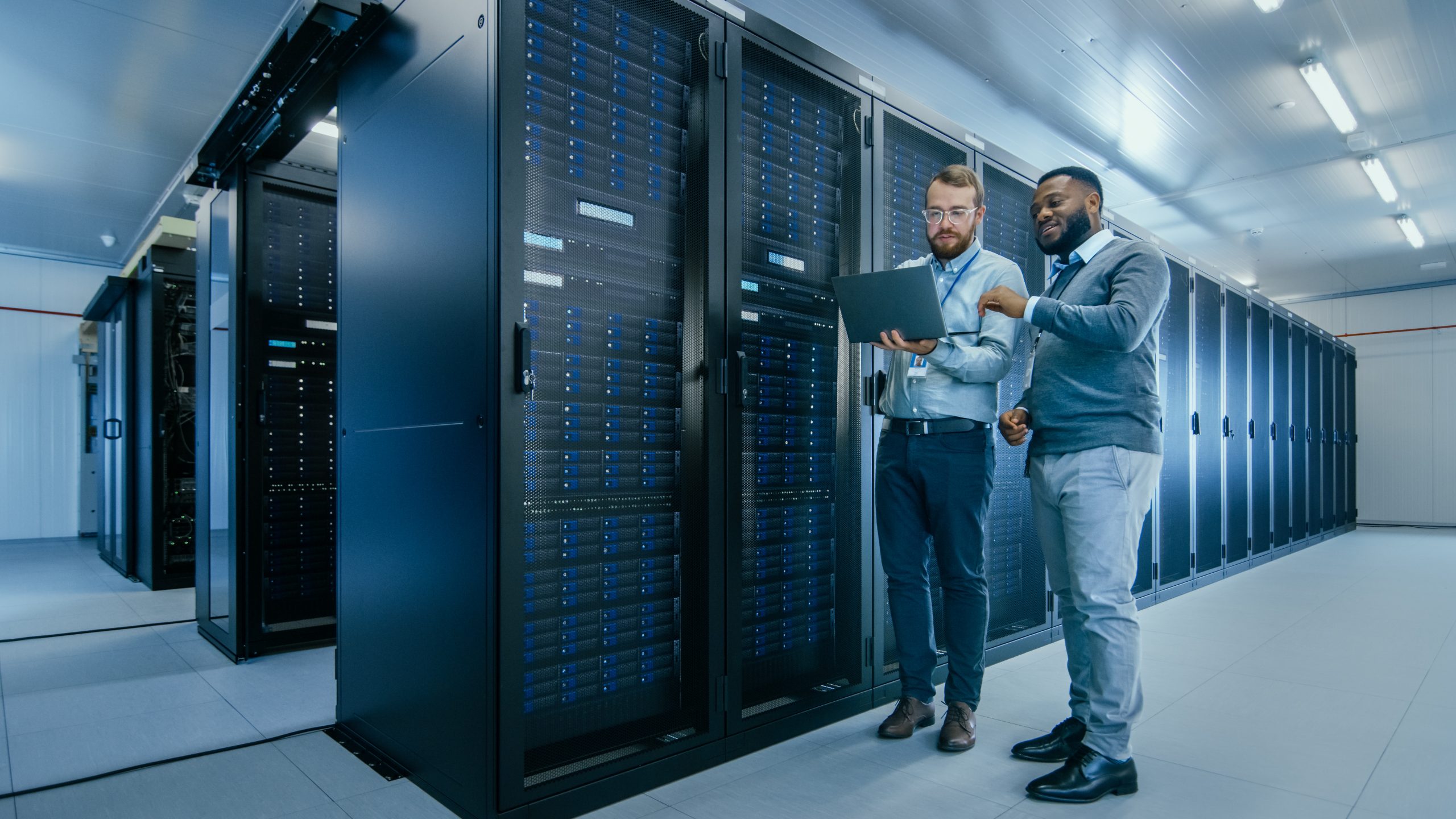Data Center and Hybrid Cloud Made Easy
The shift towards using private, public, or hybrid clouds has benefited organizations everywhere by allowing for remote access to data.
As data production increases, it becomes mission-critical to build or expand a robust data center, so that data can be easily accessed, analyzed, and downloaded.
Moving or expanding a data center is a massive undertaking that needs to be done right to ensure your data is kept safe and whole.
Accelerate Your Data Center and Cloud Deployment

Data Center and Cloud Consultants in Reno NV
Our data center specialists work with you to ensure a smooth transition to a new data center that meets all your business’s current and future needs.
With over 1200 data center/hybrid cloud projects under our belt, we’ll help you decide the best strategy for your deployment of digital assets, whether it be in a public/private cloud or in a data center, all aspects of planning require interconnection & latency considerations between cloud and data center.
We look at applications, workloads, procurement, deployment, migrations and cloud dependencies for your project. We have executive level relationships with all major data center providers globally, which accelerates your time to deployment while ensuring you get preferred pricing.
Our Data Center Practice advisory services include:
- Hybrid and Multi-Cloud Data Center Architecture
- Cloud Transformation and Optimization Consulting
- Data Center Migration and Installation Services and data destruction or decommissioning
- Data Center Security and Compliance
- Professional Services and Staff Augmentation
- Wholesale and Retail Data Center Site Evaluation
- Data Center searches utilizing our ten strategic criteria (wholesale & retail)
What is a Data Center?
A data center is essentially a warehouse for IT equipment. It’s a physical facility that houses computer systems and related components, like telecommunications and storage systems. These systems store, process, and disseminate critical data for businesses and organizations.
Here’s a breakdown of what data centers do:
- Store data: Data centers hold massive amounts of data, from business records and financial information to emails and social media posts.
- Process data: The servers in data centers crunch vast amounts of data, allowing businesses to analyze information, run applications, and deliver services.
- Distribute data: Data centers keep information flowing by transmitting it across networks to devices all over the world. This is what allows you to access your email, use online applications, and stream videos.
Data centers are essential for the digital world we live in. They keep our businesses and organizations running smoothly and efficiently. There are two main types of data centers:
- On-premises data centers: These are facilities owned and operated by individual companies to house their own IT infrastructure.
- Cloud data centers: These are massive facilities operated by cloud service providers (like Google or Amazon) that offer storage and computing resources to businesses on a rental basis.
Source: Gemini AI
What is a Hybrid Cloud?
A hybrid cloud is a mixed IT environment that combines on-premises infrastructure, private cloud services, and public cloud resources . Think of it as a blend of your own data center with the services of a public cloud provider like Amazon Web Services (AWS) or Microsoft Azure.
Here are some key points about hybrid clouds:
- Flexibility: Hybrid clouds offer businesses the flexibility to choose the best environment for their specific needs. For instance, highly sensitive data can be stored securely on-premises, while less critical tasks can leverage the scalability and cost-effectiveness of the public cloud.
- Security and Compliance: Some industries have strict regulations regarding data storage. A hybrid cloud allows businesses to keep sensitive data on-premises while using the public cloud for tasks that don’t require the same level of security.
- Scalability: Businesses can easily scale their IT resources up or down by leveraging the public cloud’s on-demand scalability. This is useful for handling spikes in traffic or processing large datasets.
Here’s an analogy: Imagine a hybrid cloud like a hybrid car. You can use the gasoline engine for most of your driving, which is like using your on-premises infrastructure for everyday tasks. But when you need a power boost, you can switch to the electric engine, similar to how you can tap into the public cloud for additional resources.
Source: Gemini AI
Waht is the Difference Between Public and Private Clouds?
- Imagine a public library: A public cloud is a shared pool of computing resources like servers, storage, and networking that’s offered by a cloud service provider (CSP) like Amazon Web Services (AWS) or Microsoft Azure. Multiple organizations can access these resources on a pay-as-you-go basis.
- Pros: Public clouds are generally more cost-effective as you only pay for what you use. They’re also highly scalable, so you can easily increase or decrease resources as needed. Additionally, the cloud provider handles maintenance and security.
- Cons: Since resources are shared, you have less control over the environment and security. There might also be concerns about data privacy, especially for sensitive information.
- Imagine a private club: A private cloud is a dedicated cloud infrastructure designed for use by a single organization. The cloud can be hosted on-premises or by a third-party provider, but the resources are exclusive to your organization.
- Pros: Private clouds offer a high degree of control, security, and customization. This is ideal for organizations with strict regulatory compliance requirements or sensitive data.
- Cons: Setting up and managing a private cloud can be expensive and requires significant IT expertise. Additionally, scaling resources can be more complex compared to a public cloud.
 Source: Gemini AI
Source: Gemini AI 